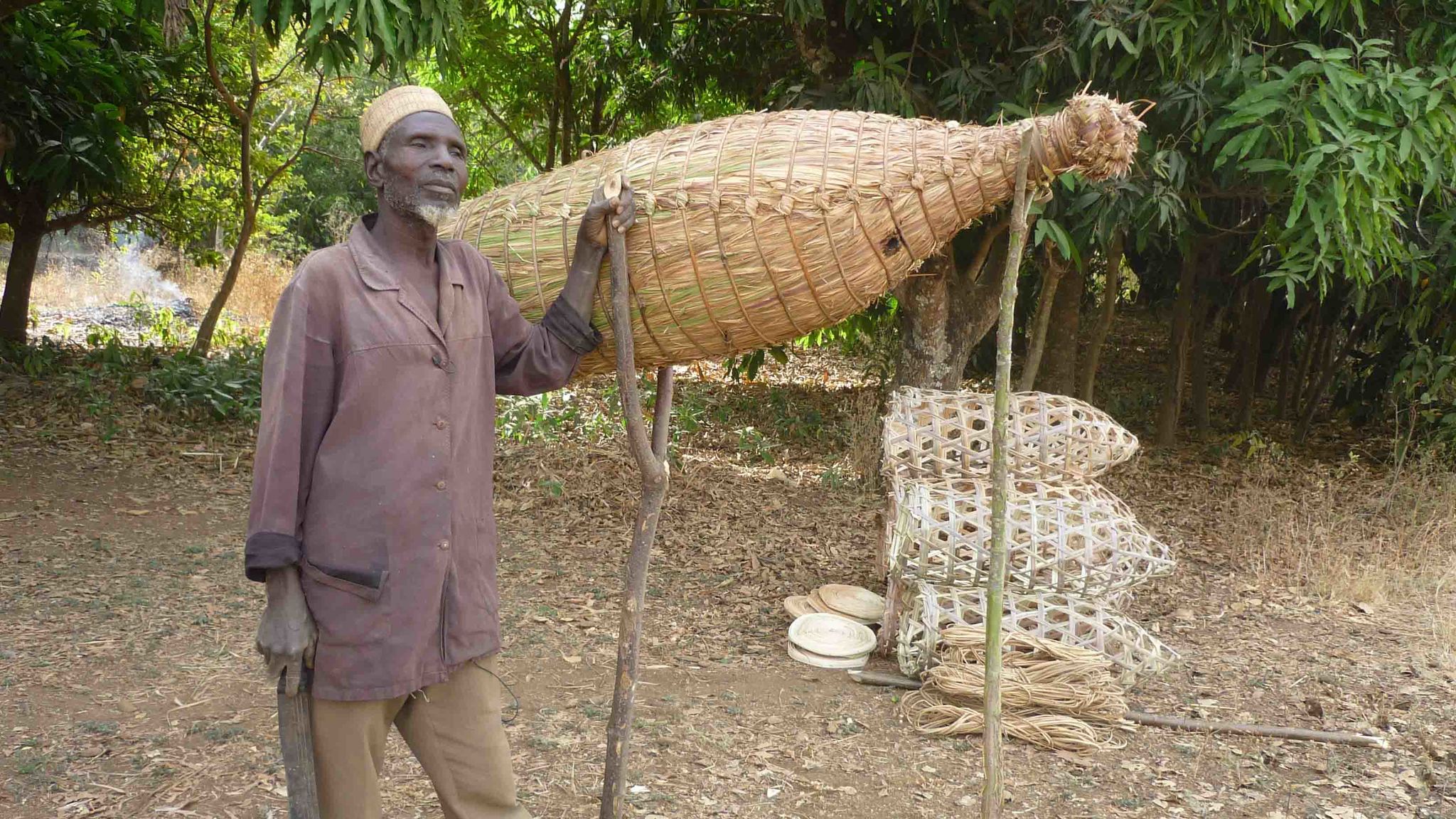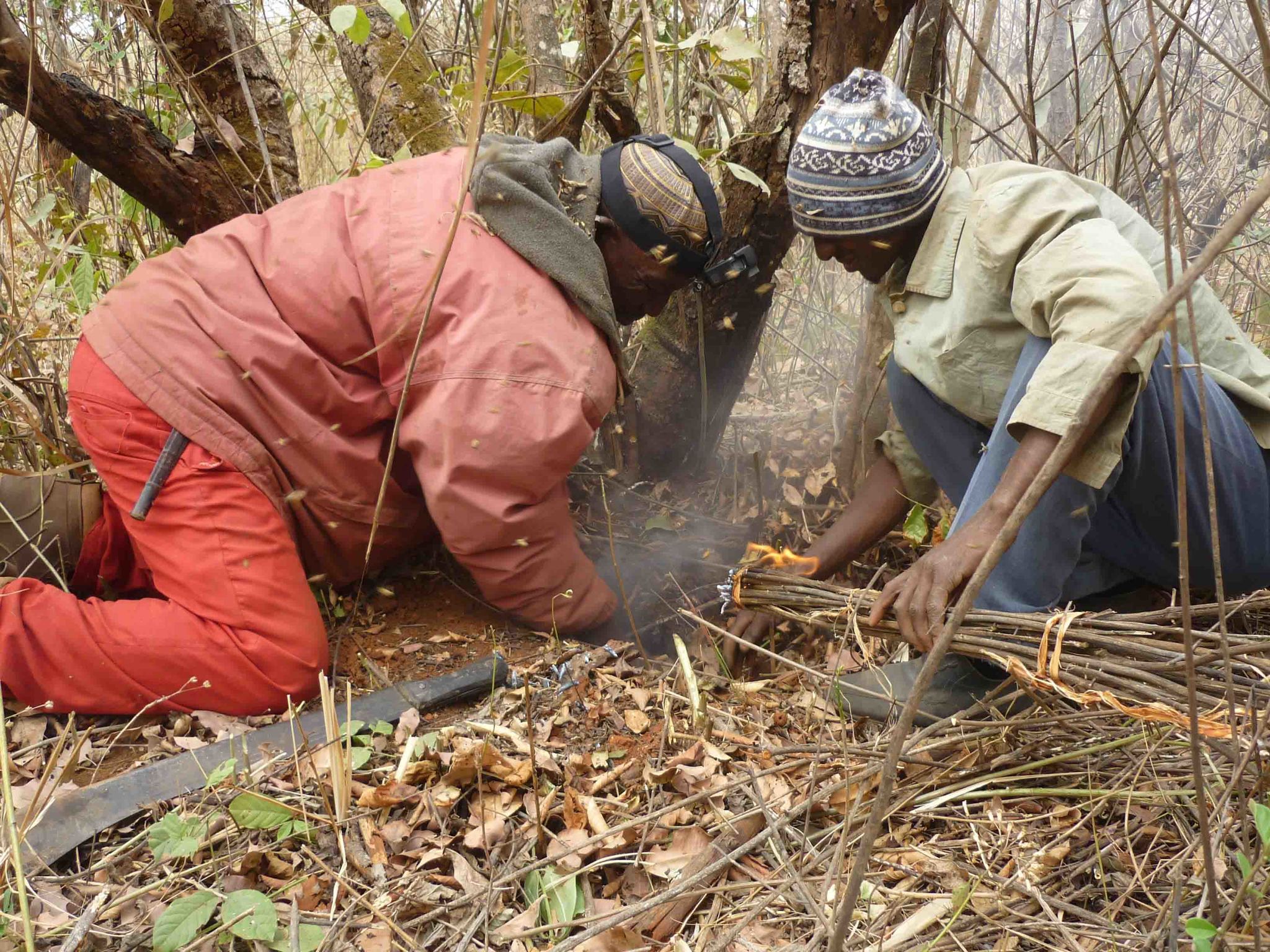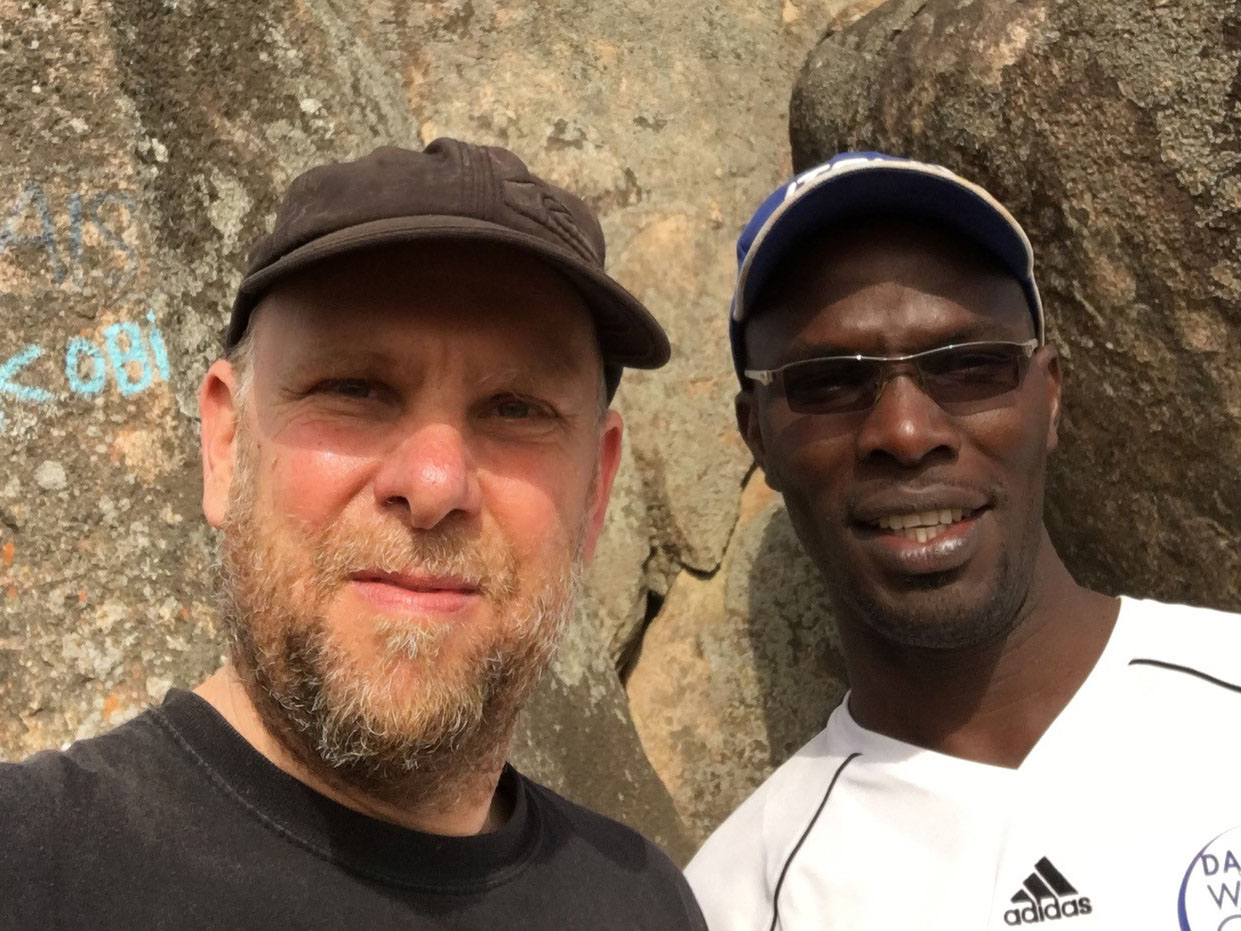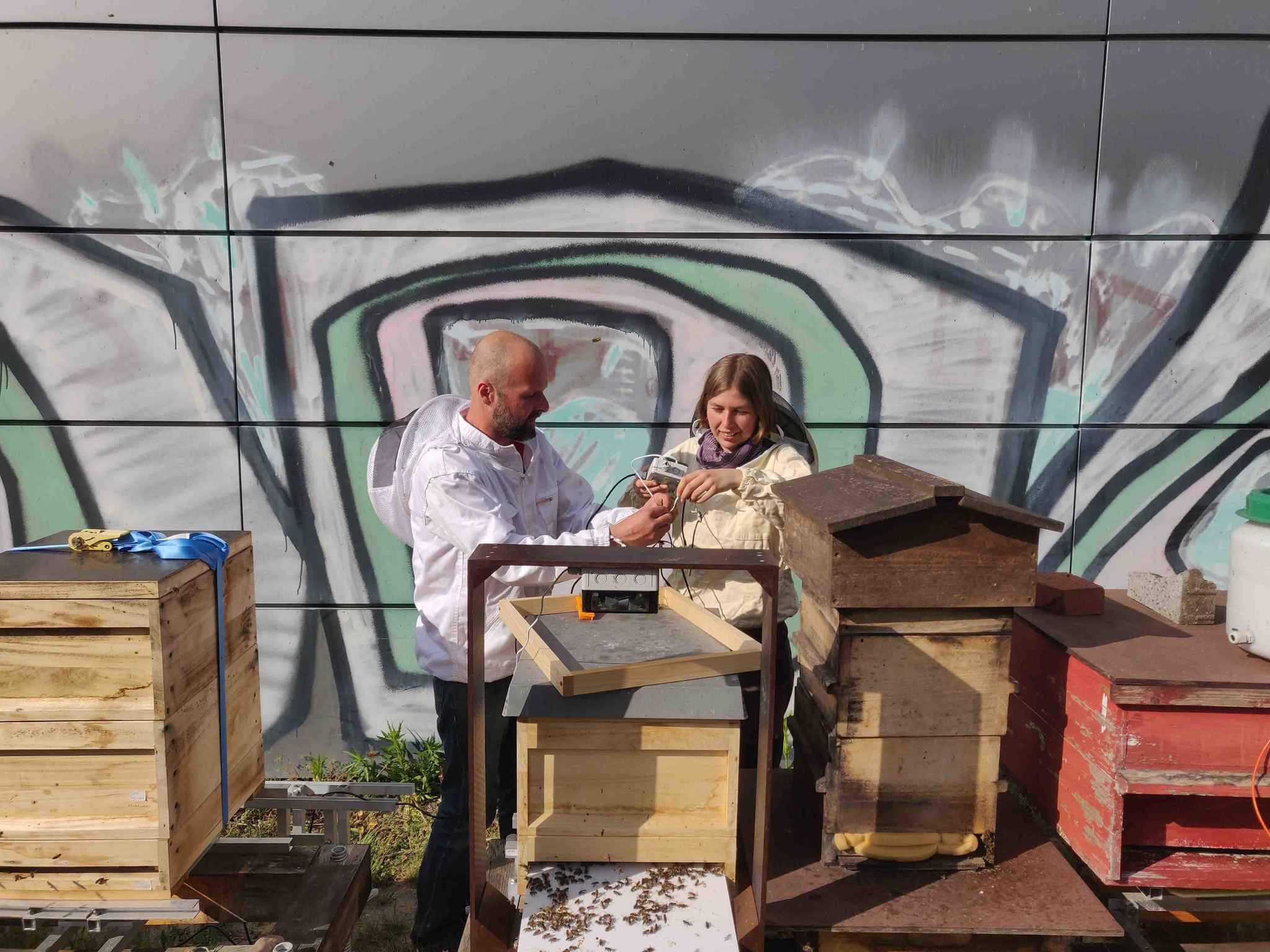
© Martin Gruber
“Honey Is an Important Commodity in Cameroon”
A close partnership between researchers in Bremen and Cameroon is to raise awareness for bees
In the field of bee research, there has been an intense cooperation between the University of Bremen and the University of Ngaoundéré in the north of Cameroon for more than 20 years. Several early-career researchers have come from the West African country to complete a PhD in the hanseatic city. Many students have spent a part of their degree at one of the two partner universities. One of them is the scientist Dr. Mazi Sanda
In the West African country, keeping bees, collecting honey from wild bee colonies, and selling honey are an important source of income. “Nearly everyone who owns a piece of land has beehives,” says Sanda. Collecting wild honey is popular with shepherds when they travel with their livestock. It is especially the honey from the northern region of Adamawa (Adamaoua), which sometimes has an impressive dark tone, that is sold across the country and is transported and sold in neighboring countries.
“Bees Were Just Insects to Me at the Beginning”
Sanda studied biology at the University of Ngaoundéré in Cameroon. “Bees were just insects to me at the beginning of my degree,” he remembers whilst laughing. A course on them amazed him so much that he wanted to know more about these animals. Thanks to a scholarship from the University of Bremen, Sanda came to Germany and met the international bee research community at conferences. “This communication was a key moment for me,” he looks back. “All of a sudden, I was able to personally speak to researchers whose scientific articles I had only read by that point.”

© Martin Gruber
Close Contact to Former Doctoral Dissertation Supervisor
The biologist completed his PhD at the University of Ngaoundéré and the University of Bremen in the field of bee research and has maintained close contact to the hanseatic city since then, for example to his former dissertation supervisor Dr. Dorothea Brückner. The biologist advocated for the cooperation with Cameroon in the 1990s. That is how a research center for bee studies was also set up at the University of Ngaoundéré. “The international approach of comparative bee research motivated several biology students to study the ecology of the tropical country Cameroon and its bee species,” says the scientist.
Transfer into Society
Sanda carried out an interesting research project on beekeeping in Cameroon with the Bremen anthropologist Dr. Martin Gruber. They accompanied and talked to people who keep bees, collect wild bee honey, or trade honey over the course of several years. Sanda and Gruber compiled their results and experiences in a book, which Dorothea Brückner published at a German publishing house. The English-language publication presents impressive photos of the day-to-day life of the people who fund their income in varying ways with honey. The book also deals with the dangers posed to the insects: It is not only pesticides used in agriculture that put the bees in Cameroon at risk. Especially the clearing of trees endangers their nesting places.
Charcoal production leads to a significant increase in timber clearing. Sanda hopes that the publication will increase awareness of bees in his home country. “It is the first bee-ecology book of its type,” he says. A documentary called Gbaya: Beekeeping and Honey Hunting by Gruber and Brückner shows the research work. The transfer into society is of great significant for all of the involved researchers. “Honey is an important commodity in Cameroon, but many people do not know a great deal about bees – about how to keep them in a manner appropriate to the species, which role they play in our country, and how they can be protected,” reports Sanda.

bee honey, or trade honey over the course of several years. This resulted in a book and a documentary.
© Martin Gruber
Beekeeping with Varying Interests
His Bremen colleague Martin Gruber does not only focus on Cameroon in the frame of his bee research. “I am interested in the diverse relationships between humans and bees in Cameroon, Germany, and Japan,” he explains. For several years, there has been increasing interest in beekeeping in all three countries. “It is apparent that beekeeping is mainly seen as an important source of income in Cameroon. In Germany and Japan, many new beekeepers keep bees as part of an alternative lifestyle or because they want to be close to nature,” according to the ethnologist. There is a trend for beekeeping practices that are similar to traditional beekeeping practices in Cameroon.
Great Interest in Sensor Technology in Bremen
It is with great interest that his colleague Sanda from Cameroon keeps up to date with bee research in Bremen where beehives can be monitored using sensor technology. The sensors are installed in the housing. With their help, it is possible, for example, to measure the quantity of honey or the temperature without opening the hive each time. “One avoids exposing the animals to unnecessary stress with this technique,” explains Thomas Kluß from the Cognitive Neuroinformatics working group at the University of Bremen. He is an enthusiastic beekeeper himself and has been working together with beekeepers from Bremen and across regions as part of the so-called Citizen-Science Project for a long time. The Bee Observer project provides valuable information on the well-being of bee colonies in their hives. This information is of interest across the world. Kluß supplies beekeepers with the sensor technology to allow them to monitor their hives. In return, the hives provide data that enables him to research bee mortality.

© Cedric Kränzle
Corona Halts Research Trip to Cameroon
The computer scientist is also interested in bee research in Cameroon. Kluß and his Bremen colleague Diren Senger actually wanted to travel to the Adamawa region this year to speak to Sanda and the Cameroonian researchers and students from the University of Ngaoundéré. But their plans have initially been put on hold due to the corona crisis. “Even when a great deal is possible via digital communication, we regret that this trip cannot take place,” says Kluß. “I was especially looking forward to the joint hive work there. Direct communication with beekeepers is always a great experience.”
More Information
For those who are interested in “Honey Hunting and Beekeeping in Adamaoua (Cameroon)”: It was published by Rüdiger Köppe Verlag Cologne in 2019.